Surveyor profession
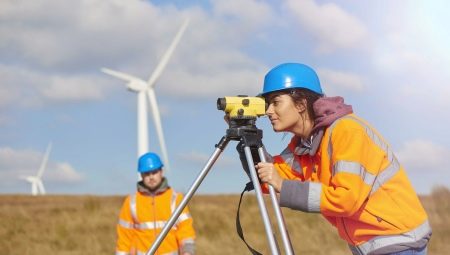
Knowledge of the peculiarities of the surveyor's work, what he does according to the job description, will allow you to decide whether it is worth mastering such a specialization or not. It will be necessary to study the specifics of surveyors-topographers and other areas of this profession. Finally, it is useful to pay attention to salary and training.
Description
Since ancient times, people have built, traveled, transported goods - but all this, as well as many other things, could not be done without drawing up maps of the area. That is why the history of the profession of a surveyor is rooted in time immemorial. It is known for sure that already in antiquity, and even earlier, in the great civilizations of antiquity, it was impossible to do without maps and plans. In subsequent centuries, the need for land surveying only grew, and people who owned it were in demand in all states.

But the importance of geodetic activity especially increased with the beginning of the industrial revolution. Already designing railways with ancient tools proved to be impossible. Later, when the scale of economic activity increased from the end of the 19th century, when there were much more linear structures, the level of technical equipment in geodesy increased sharply. Both the prestige of the specialists employed in it and the relative level of remuneration have increased. It is quite difficult to work as a surveyor, this activity is relatively the same type - but on the other hand, almost everything that is created by a person will have your contribution.
A real surveyor is a rather broad specialist. A considerable part of his work takes place on the ground, where he has to mark and measure many different objects and objects, measure distances. Then, in an office environment, all these data are generalized and become the basis for computational and cartographic models. Neither the commissioning of a new land plot, nor the construction of an apartment building or a road, nor even more so the preparation of master plans for the development of the area is unthinkable without geodetic works.
Mathematical calculations play a very important role in the profession - nothing can be done without them.
Differences from a cadastral engineer and surveyor
These three professions are often confused with each other - in fact, they overlap in many ways. A cadastral engineer works just like a surveyor. However, he prepares various maps and plans, official documents reflecting the boundaries of land plots, and other materials required for the state land cadastre. A simple surveyor does not have such powers, since they still require knowledge of many legal and even economic subtleties. But the cadastral engineer will not be able, for example, to control the progress of construction and the execution of documentation on land management in its process.
The mine surveyor is a professional of an even higher level. Much of his work goes underground, which creates additional risks. Even if these risks are only potential, working conditions are much more difficult. We'll have to additionally study information about groundwater and minerals. And general geology in mine surveying is much more significant.
Advantages and disadvantages
It should be pointed out right away that the demand and prospects of the geodetic profession are undeniable. People will mark the land and delimit areas for many hundreds and thousands of years; even with the disappearance of the institution of property in any country, practical considerations will not disappear anywhere.
The income of modern "land surveyors" is very high in comparison with the average salaries in the economy. Any sane manager understands that without surveyors, not a single serious project will move.
However, one must understand that:
- it can be difficult to work purely physically;
- you will have to forget about the rationing of the working day;
- it will take a lot of time outdoors, regardless of the weather;
- often you will need to go on business trips for a long time;
- an indispensable requirement is iron health;
- measurements on the ground sometimes require to overcome tens of kilometers - and even in hard-to-reach sparsely populated areas.
Job description
Responsibilities
An employee in the position of a surveyor deals primarily with a complex set of measuring work. At the same time, he is obliged to comply with a number of requirements - in terms of accuracy, urgency, volume of measurements. You also have to produce:
- alignment work on the ground;
- control of probable violations at the facilities;
- checking the deformation of buildings and structures based on the results of measurements;
- executive survey of structures and open parts of underground facilities;
- observation of geodetic marks and the accuracy of their placement.
Anyone who does all this should definitely know:
- legislation and local regulations in terms of environmental protection;
- norms for the use of natural resources;
- methodological standards for work, including remote sensing;
- the nuances of the production of geodetic works in a specific area;
- basic instructions and orders of the management;
- features of tools and equipment;
- verification and adjustment standards;
- rules for maintaining documentation;
- the procedure for drawing up maps and plans.
The chief surveyor manages the entire geodetic service of an organization or enterprise.
It is he who controls the execution of specific work and adherence to their established schedule. He also has to control the maintenance of field records and the preparation of reports on the work done.It is with the sanction of the chief surveyor and by his direct order only that new methods and methods of work, new types of equipment can be introduced. Finally, it is he who gives orders and distributes responsibilities in a particular expedition or business trip.
As for the leading surveyors, they:
- personally carry out work complexes;
- accept assignments from customers and clarify the nuances;
- control the movement and deformation of various structures in the process of work;
- notify managers of all dangerous and abnormal situations;
- present objects of inspection to control commissions;
- comply with the established orders, including those regarding work execution schedules.
Rights
This specialist, according to the professional standard and job descriptions, is obliged to do a lot - therefore his powers are also very wide. In particular, they include the requirement for optimal working conditions - including in hard-to-reach areas. Accommodation, meals, equipment and equipment should normally be provided and provided by the employer. Also, the privileges of surveyors are:
- formation of proposals on how to improve work in your field;
- gaining access to the information required for the production of work;
- approval of documents or refusal to leave a signature;
- familiarization with draft orders and orders for their activities;
- receiving surcharges when working on an unordered schedule.
A responsibility
The surveyor and surveyor must be responsible in the event of:
- violations of administrative or criminal norms;
- disclosure of confidential information;
- failure to fulfill obligations under labor contracts and job descriptions (within the provisions of the Labor Code);
- causing material and moral damage to the employer and other persons, organizations.

Education
The specialty "Geodesy" requires a higher technical education. The necessary training is carried out either in colleges or in higher education institutions. Since this profession belongs to the technical category, the answer to which subjects must be taken is quite obvious. Knowledge of mathematics, geography and physics is relevant. Almost any educational institution also requires basic knowledge in the field of geology.
The training itself implies mastering:
- regulatory requirements;
- GOST in the field of construction;
- building codes and regulations;
- specialized software packages.
The applied part of the training involves mastering work on specialized equipment. Along with tachometers and levels, you will still have to master the skills of manipulating GPS receivers. The average specialized training takes 3-3.5 years. Higher geodetic education is obtained in 4.5-6 years.
It is necessary to understand that the average level allows you to apply for the maximum position of an assistant surveyor, and you can become a real specialist only at an institute or university.
For future specialists, training profiles are suitable:
- "Cartography";
- "Geodesy and Remote Sensing";
- "Cartography and Geoinformatics";
- "Applied Geodesy".
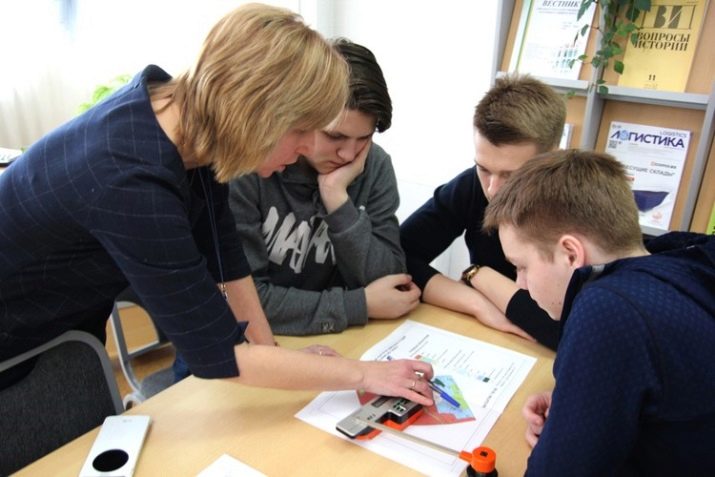
The necessary training is provided by:
- Moscow State University for Land Management;
- RUDN University;
- Russian Agrarian University;
- Moscow State University;
- College of Architecture and Urban Planning of Moscow;
- SPbSU;
- Mining University of St. Petersburg.
Outside the two capitals, training is carried out in:
- State University of Kalmykia;
- UrFU;
- Saratov Research University;
- Polytechnic University of Tomsk;
- Bashkir State University;
- Pacific State University;
- Technical University of Voronezh.
Refresher courses are organized in special educational institutions or at construction companies. In some cases, they are sent for retraining abroad. The admission to work is possible only after passing the certification.
Details about it can be found directly in any organization where they come to get a job.You can usually go to the local training center.
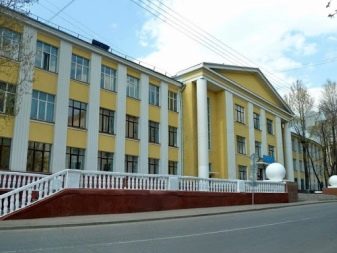
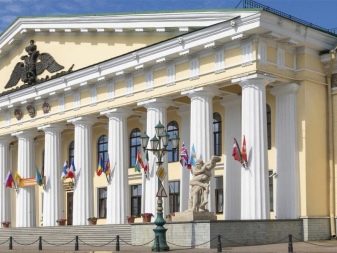
Place of work
The overwhelming majority of specialists in the field of geodesy work in construction organizations. They are attracted when it comes to building anything:
- private house;
- residential complex;
- industrial enterprise;
- transport object;
- power plants;
- distribution networks;
- trade and educational institutions.
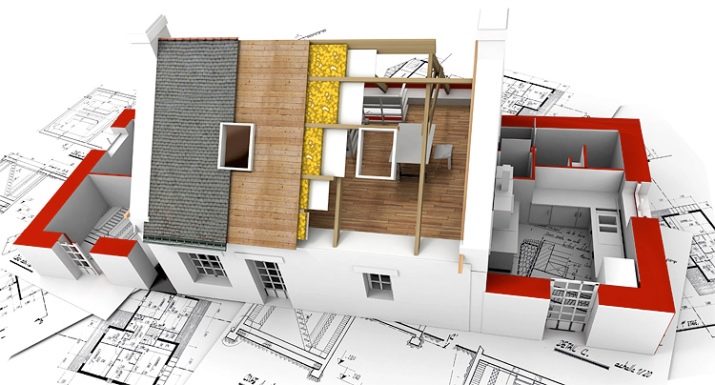
But without geodesy, it is impossible to determine the boundaries, individual parts on the land plot. No wonder surveyors, after a little retraining, can become cadastral engineers. Professionals have to not only travel “around cities and villages”. Quite often, you need to go to the mountains and deserts, to the forests and the tundra for a variety of purposes. Even if an object has already been built somewhere, geodetic control allows you to make sure that everything is in order with it.
A military surveyor serves primarily in artillery and missile units. If necessary, the effectiveness of hostilities, more precisely, the use of powerful weapons, largely depends on him. Since the need to fight, alas, can arise almost everywhere and in any area suddenly, it is necessary to constantly update information about a variety of localities. To do this, with a certain frequency, they recheck previous measurements, maps and plans throughout the country.
Military specialists have at their disposal a wide variety of equipment, including very sophisticated ones, but in the foreseeable future one cannot do without pedestrian crossings and personal examinations.
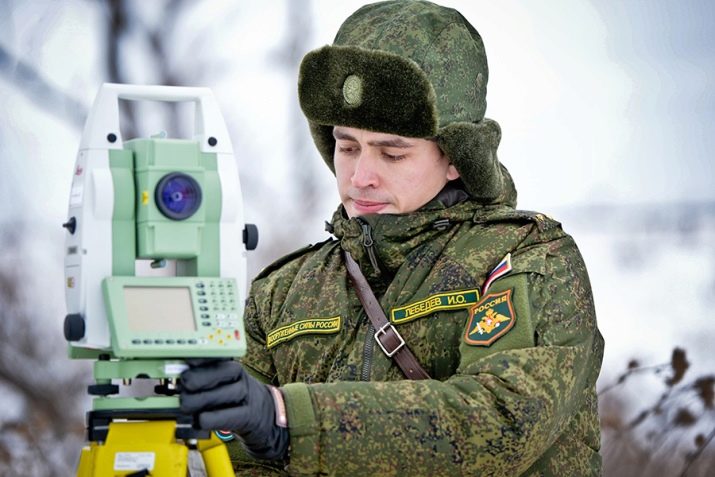
How much does he get?
The average salary of surveyors in Russia is 53,000 rubles. It is directly affected by the place of residence and the demand for this specialization. The better the economic situation in the region, the higher the income. Bonuses are awarded based on seniority and work experience.
The rotational method allows you to significantly increase wages compared to work in your region, and in remote places and in the zone of environmental or other risk, the vacation will be longer by several days.
In Moscow and the surrounding area, the average salary reaches 50,000 rubles. In the northern capital, the rate will be 45,000. In Udmurtia, surveyors are willing to pay up to 90,000. In Tyva, the usual wages are up to 80,000. Professionals without experience can count on income no more than:
- 40 thousand rubles in the capital;
- 32 thousand in St. Petersburg;
- 20 thousand in Voronezh.









